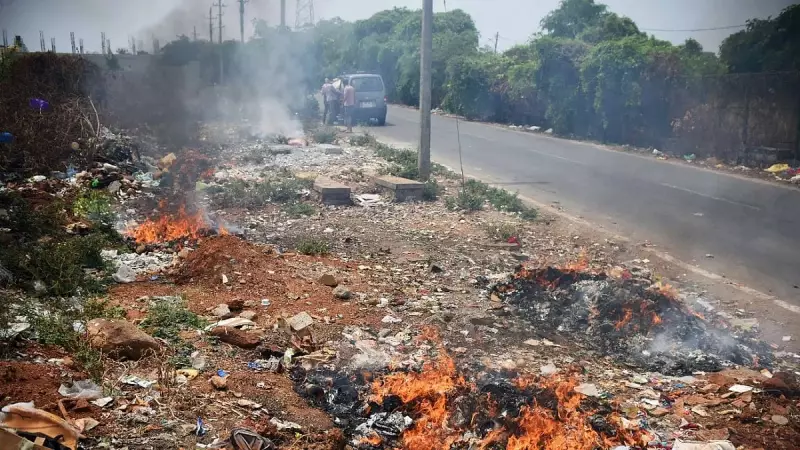
In a significant move to combat air pollution, Bengaluru Solid Waste Management Ltd (BSWML) has declared it will file First Information Reports (FIRs) against individuals and entities caught burning waste within the city limits. This stern action comes as part of the organization's intensified efforts to address the growing environmental concern and public health hazard posed by improper waste disposal methods.
The Crackdown on Waste Burning
BSWML Executive Director Harish Kumar confirmed the development, stating that the organization has initiated a comprehensive campaign against waste burning activities across Bengaluru. The decision follows numerous complaints from residents and environmental groups about the persistent practice of burning dry leaves, plastic, and other waste materials in open spaces, residential areas, and even on streets.
The organization has specifically instructed its ground staff and field officers to remain vigilant and document instances of waste burning. "Our teams are actively monitoring various areas, and whenever we encounter waste burning, we are taking photographs and collecting evidence," Kumar explained. "This evidence will be crucial when filing police complaints against the offenders."
Legal Framework and Penalties
The action against waste burning finds its legal basis in multiple environmental regulations. The primary legislation being invoked is the Solid Waste Management Rules, 2016, which explicitly prohibit the burning of any type of waste in open spaces. Additionally, the Air (Prevention and Control of Pollution) Act, 1981, provides further legal backing for such punitive measures.
Violators face serious consequences under these environmental laws. Beyond the immediate FIR filing, offenders could be subject to substantial fines and even imprisonment depending on the severity of the violation. The specific sections of these laws being applied make the offense cognizable, meaning police can investigate without a warrant and make arrests based on the evidence provided.
Environmental and Health Implications
The crackdown comes at a critical time when Bengaluru, like many Indian cities, struggles with deteriorating air quality. Open waste burning releases numerous toxic pollutants including particulate matter (PM2.5 and PM10), carbon monoxide, dioxins, furans, and other hazardous chemicals that significantly contribute to air pollution.
Medical experts have repeatedly warned about the severe health impacts of exposure to smoke from burning waste. "The practice poses serious respiratory health risks, especially for children, elderly citizens, and those with pre-existing conditions like asthma," noted a public health specialist familiar with the issue. The toxic emissions can lead to both immediate health problems like breathing difficulties and long-term issues including increased cancer risk.
Beyond health concerns, waste burning also contributes to environmental degradation by releasing greenhouse gases and damaging soil quality in the affected areas. The practice undermines proper waste management systems and discourages segregation at source, which is crucial for effective recycling and composting.
Public Response and Alternative Solutions
Environmental activists and citizen groups have welcomed BSWML's decision, describing it as a much-needed step toward cleaner air in Bengaluru. Many have been campaigning for stricter enforcement against waste burning for years, arguing that occasional fines were insufficient to deter the practice.
BSWML officials emphasize that the FIR filing is part of a broader strategy that includes public awareness campaigns about proper waste disposal methods. The organization encourages citizens to utilize authorized waste collection services and composting facilities rather than resorting to burning. For garden waste like dry leaves, they recommend composting or using the corporation's green waste collection services.
Residents can report instances of waste burning through the BSWML helpline or the Sahaya mobile application, enabling quicker response from authorities. The organization has assured that complaints received through these channels will be promptly addressed, with field teams dispatched to verify and take necessary action.
As Bengaluru continues its battle for cleaner air and better waste management practices, this firm stance against waste burning represents a significant escalation in enforcement efforts. The success of this initiative will depend on consistent implementation and public cooperation in adopting environmentally responsible waste disposal habits.





